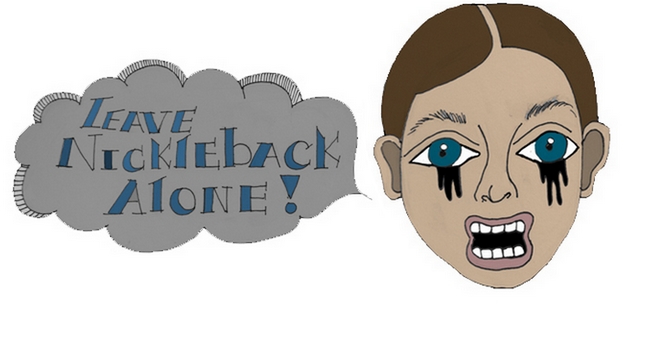 Fucked Up’s latest album David Comes to Life is something special. One of the things that makes the album great is just how different it is: growly punk vocals and a four-act storyline that deals with metafiction, loss, society and unreliable narrators. The really fascinating thing is that while it’s unique, it’s definitely not alone. Damian Abraham, the lead singer of Fucked Up, says that he thinks this sort of songwriting, where one writes with the intention of making a cohesive album rather than a collection of songs, is becoming a lost art. But Damian Abraham is wrong. The art is as vibrant today as it has been in decades, particularly when it comes to the concept album.
Fucked Up’s latest album David Comes to Life is something special. One of the things that makes the album great is just how different it is: growly punk vocals and a four-act storyline that deals with metafiction, loss, society and unreliable narrators. The really fascinating thing is that while it’s unique, it’s definitely not alone. Damian Abraham, the lead singer of Fucked Up, says that he thinks this sort of songwriting, where one writes with the intention of making a cohesive album rather than a collection of songs, is becoming a lost art. But Damian Abraham is wrong. The art is as vibrant today as it has been in decades, particularly when it comes to the concept album.
What do we mean by “concept album?” Conventional wisdom once held that the first modern concept album was The Beatles’ groundbreaking Sgt. Pepper’s Lonely Hearts Club Band. However, Sgt. Pepper isn’t the sort of concept album we’re talking about—in fact, it’s probably not really a concept album at all. Most of the conceptual elements the Beatles were talking about during development didn’t make it into the final product. The sort of concept album we’re talking about today has more in common with the “rock opera,” the term that Fucked Up perfers to use for David Comes To Life. The defining principle of the rock opera is a narrative that explicitly ties the songs together. The Who’s Tommy was the first breakthrough for this kind of work. There was also a sort of inherent arrogance against the whole idea: the thought that albums could be connected works like novels was highly controversial. The notion that albums could be more than a collection of radio singles was groundbreaking.
Rock operas were huge in the glam and progressive rock scene of the ’70s, as attested by David Bowie’s The Rise And Fall of Ziggy Stardust and the Spiders From Mars.
The album told a crazy messianic story about a rock star in communication with dimension-jumping aliens was (and is) incredibly weird, but the strangest thematic excesses of glam are no stranger than the metafiction of David Comes to Life, where the main character comes to rage against the author (or particularly, the narrator, who goes by the name of Octavio St. Laurent), and eventual acceptance of his own unreal nature. It’s also no stranger than 2010’s Heartland by violinist Owen Pallet. Pallet’s wispy vocals and loop-pedal augmented violin couldn’t sound more different than the chugging guitars from David Comes To Life, but it also weaves a story wherein a character named Lewis struggles with his own fictional nature, culminating in Lewis killing Owen Pallet himself atop a mountain in the penultimate song.
If you need further proof, look no further than the stripped-down, poetic tomes of The Mountain Goats. Quite simply, every new album the Mountain Goats have released in recent memory has been a concept album of some kind. Ditto for the Arcade Fire discography, especially 2007’s Neon Bible and 2010’s Grammy-winning The Suburbs. So why have concept albums made a return after languishing for most of the ’80s and ’90s?
Some of this can be attributed to the simple swing of the cultural pendulum. Just as the skinny ties of today are replacing the wider ties of decades past, so has music gotten, well, brainier. If this theory is indeed correct, expect a backlash against what future generations of bands will see as pretentious intellectualism, just like in the heyday of early punk. Hell, maybe even mullets will be back in style.
One of the great risks of the concept album has always been that nobody would get what that album was talking about; that the meaning of the album as a concept is “out of reach.” An argument, that with each passing day, loses steam, is when one is able to listen to an album on Spotify (for now, though the record companies may have changed that by the time you read this), scan a synopsis on Wikipedia, track down every word a band has ever said via Google, and then spend time debating the ‘true’ meaning of the album on message boards and social networks, that ‘out of reach’ clause becomes startlingly obsolete. If you want to find it, it’s out there. If you like the album, there aren’t a lot of practical barriers standing in your way. Now that a growing number of music fans are digesting albums at the same rate as many music journalists, consumers are becoming adept at handling a richer brew of ideas. Who knows? They may even have an appetite for it.



